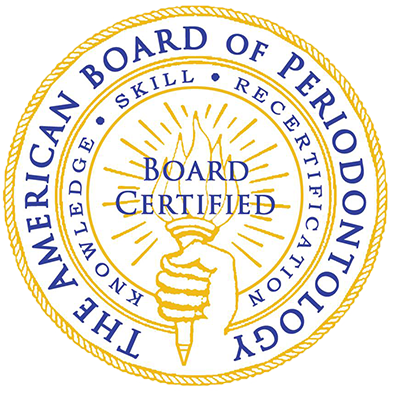How to Whiten Teeth
How to Whiten Teeth for a Beautiful Smile
How Do Teeth Whiteners Work, and Are They Good For Your Teeth by Dr. Stephanie Sfiroudis, Leading Nassau County Periodontist
People believe that white teeth are an indication of healthy teeth. While healthy teeth will be whiter than unhealthy teeth, whitening your teeth does not improve your dental health. A bright white smile does not necessarily correlate with optimum dental health. Although your dentist can whiten your teeth, it isn't a medical procedure like having a cavity filled.
Many people choose to use over-the-counter whitening products to whiten their teeth at home and obtain bright smiles to boost their confidence. This is often more affordable than a professional whitening. The results do not last as long, but it is important to remember that whitening is never permanent, especially if you drink coffee, smoke or engage in other lifestyle choices that are inclined to stain your teeth. Along with over-the-counter bleaching products, there are also a number of whitening toothpastes on the market today.
You might be wondering how exactly teeth whiteners work and if they're good or bad for your teeth. Almost all whitening products use a chemical called carbamide peroxide as the bleaching agent. Many whitening toothpastes also contain a form of peroxide and they are also more abrasive than regular toothpastes to make them more effective at scrubbing away surface stains. Whitening toothpastes work to clean your teeth, but they are not as effective as the bleaching products specifically made to whiten only.
How Do Teeth Whiteners Work?
Different whitening products use different concentrations of carbamide peroxide, which largely determines how rapidly the bleaching takes place and how long the results last. Some products may contain weaker forms of peroxide, and these are generally thought of as being less effective.
If you choose to take the professional whitening route, your dentist will use a very strongly concentrated product. They also typically use a special laser light along with bleach to further speed the process and give you the longest-lasting results. The laser serves to activate the bleaching compounds and accelerate the reaction.
The higher concentrations of bleach used by a dentist can easily irritate your gums, but measures can be taken to protect your gums with special shields or a gel. Your dentist will closely observe the process to make sure that it's going smoothly, and you aren't experiencing any negative side-effects.
Because of the strength of the whitening product used by professionals it typically takes only one, or sometimes two, visits to obtain a white smile. The process will be thirty minutes to an hour and results should last several months.
In addition to varying by bleach concentration and strength, over-the-counter products also vary a great deal by the application method. Some have a tray, others are strips, others are simply a gel applied to your teeth and then brushed off. These different methods take different amounts of time and different numbers of applications before results can be seen.
Carbamide peroxide, like other types of bleaching agents, is very good at removing stains. It is capable of removing both surface stains as well as deeper stains, and it dyes the enamel of your teeth too. The effectiveness of the bleach depends on how stained your teeth are. It works well for yellowed teeth as well as most brown teeth, but it is not effective for teeth that are gray. If you have any bonding or fillings in your teeth that are tooth-colored, the bleach will not work on these either.
Are Teeth Whiteners Good For Your Teeth?
Some people report side-effects associated with whitening their teeth. The most common side-effects are tooth sensitivity during the treatment as well as some mild gum pain because the bleach is an irritant. This typically goes away following the conclusion of the treatment.
As mentioned earlier, whitening your teeth does not improve your dental health. A white smile may boost your self-confidence, but you still may have cavities or other underlying dental problems. You should consult your dentist or another dental health professional before whitening your teeth, and of course, still visit your dentist for thorough teeth cleanings as well as check-ups to help maintain your overall oral health.
Please contact Dr. Stephanie Sfiroudis for a free consultation regarding any questions or concerns about your periodontal health.
Many people choose to use over-the-counter whitening products to whiten their teeth at home and obtain bright smiles to boost their confidence. This is often more affordable than a professional whitening. The results do not last as long, but it is important to remember that whitening is never permanent, especially if you drink coffee, smoke or engage in other lifestyle choices that are inclined to stain your teeth. Along with over-the-counter bleaching products, there are also a number of whitening toothpastes on the market today.
You might be wondering how exactly teeth whiteners work and if they're good or bad for your teeth. Almost all whitening products use a chemical called carbamide peroxide as the bleaching agent. Many whitening toothpastes also contain a form of peroxide and they are also more abrasive than regular toothpastes to make them more effective at scrubbing away surface stains. Whitening toothpastes work to clean your teeth, but they are not as effective as the bleaching products specifically made to whiten only.
How Do Teeth Whiteners Work?
Different whitening products use different concentrations of carbamide peroxide, which largely determines how rapidly the bleaching takes place and how long the results last. Some products may contain weaker forms of peroxide, and these are generally thought of as being less effective.
If you choose to take the professional whitening route, your dentist will use a very strongly concentrated product. They also typically use a special laser light along with bleach to further speed the process and give you the longest-lasting results. The laser serves to activate the bleaching compounds and accelerate the reaction.
The higher concentrations of bleach used by a dentist can easily irritate your gums, but measures can be taken to protect your gums with special shields or a gel. Your dentist will closely observe the process to make sure that it's going smoothly, and you aren't experiencing any negative side-effects.
Because of the strength of the whitening product used by professionals it typically takes only one, or sometimes two, visits to obtain a white smile. The process will be thirty minutes to an hour and results should last several months.
In addition to varying by bleach concentration and strength, over-the-counter products also vary a great deal by the application method. Some have a tray, others are strips, others are simply a gel applied to your teeth and then brushed off. These different methods take different amounts of time and different numbers of applications before results can be seen.
Carbamide peroxide, like other types of bleaching agents, is very good at removing stains. It is capable of removing both surface stains as well as deeper stains, and it dyes the enamel of your teeth too. The effectiveness of the bleach depends on how stained your teeth are. It works well for yellowed teeth as well as most brown teeth, but it is not effective for teeth that are gray. If you have any bonding or fillings in your teeth that are tooth-colored, the bleach will not work on these either.
Are Teeth Whiteners Good For Your Teeth?
Some people report side-effects associated with whitening their teeth. The most common side-effects are tooth sensitivity during the treatment as well as some mild gum pain because the bleach is an irritant. This typically goes away following the conclusion of the treatment.
As mentioned earlier, whitening your teeth does not improve your dental health. A white smile may boost your self-confidence, but you still may have cavities or other underlying dental problems. You should consult your dentist or another dental health professional before whitening your teeth, and of course, still visit your dentist for thorough teeth cleanings as well as check-ups to help maintain your overall oral health.
Please contact Dr. Stephanie Sfiroudis for a free consultation regarding any questions or concerns about your periodontal health.

Patient Testimonials
“I have always found the Dental Hygienist to be top-notch when I come in for a routine cleaning. Some visits are quicker than other, and I appreciate when they spend more time cleaning my teeth when it's needed. I also like that Dr. Sfiroudis personally comes in after my cleaning to inspect the work and check that everything is okay. I highly recommend Dr. Attalla and her team!”
“I have always found the Dental Hygienist to be top-notch when I come in for a routine cleaning. Some visits are quicker than other, and I appreciate when they spend more time cleaning my teeth when it's needed. I also like that Dr. Sfiroudis personally comes in after my cleaning to inspect the work and check that everything is okay. I highly recommend Dr. Attalla and her team!”
-John B.,
Glen Cove, NY
Glen Cove, NY
Dr. Stephanie Sfiroudis, DDS, MS
99 Hillside Ave. Suite A.
Williston Park , New York 11596
Phone: (516) 747-1145
Williston Park , New York 11596
Copyright 2015 Dr. Stephanie Sfiroudis DDS, PC All Rights Reserved. Art Licensed by Shutterstock.













